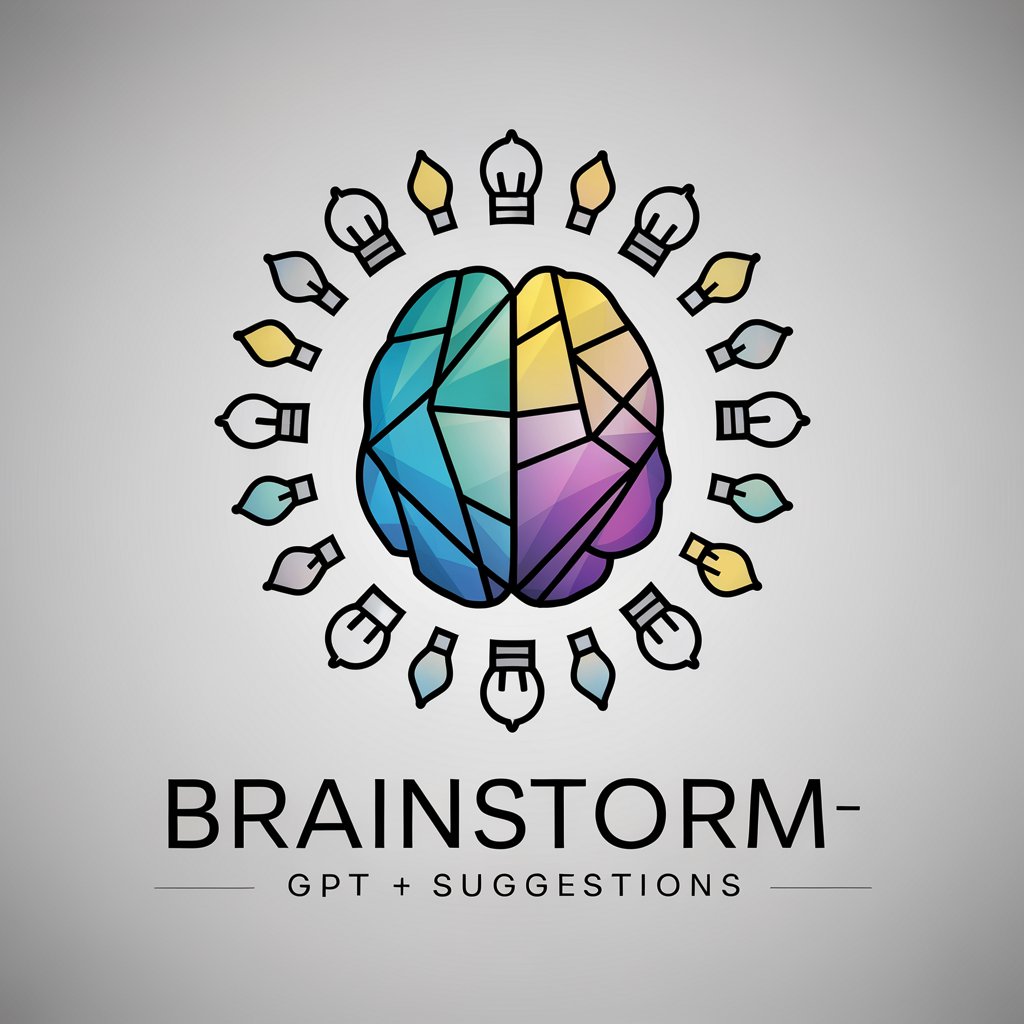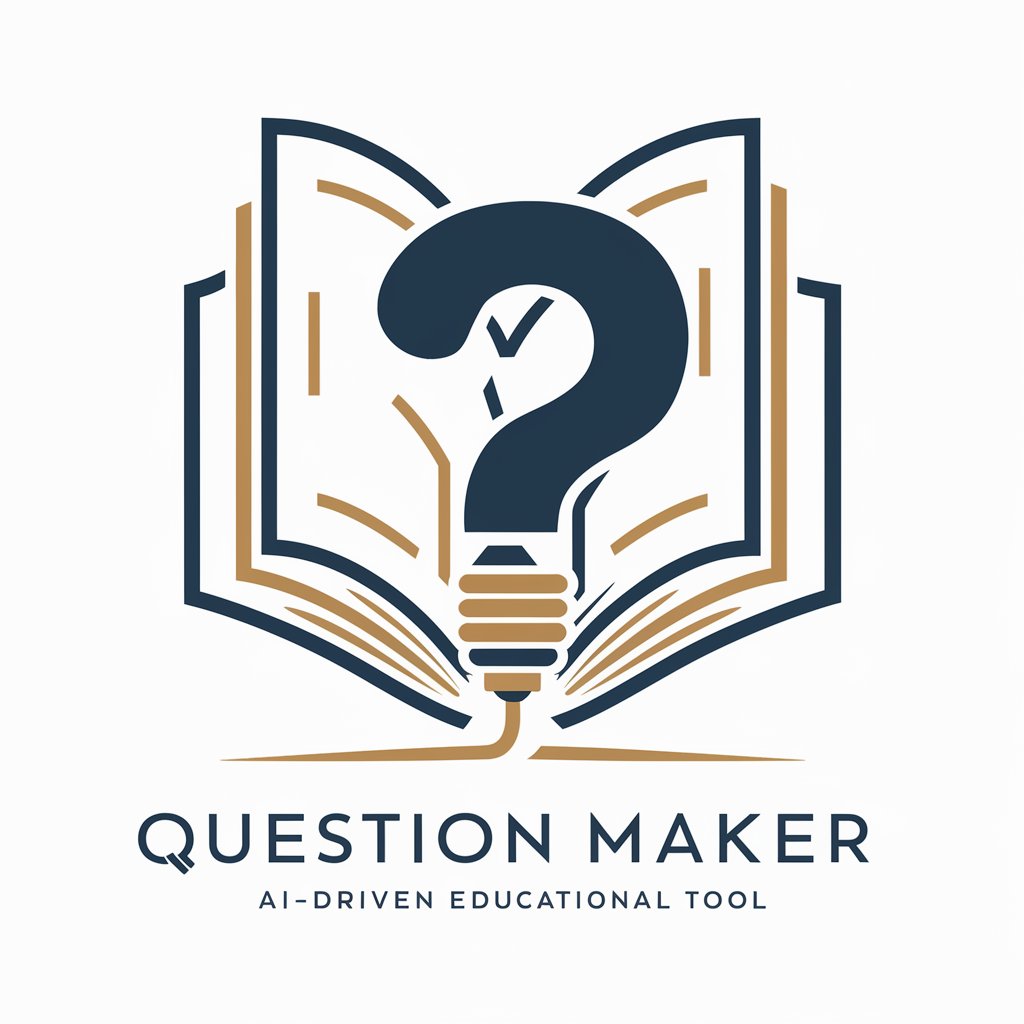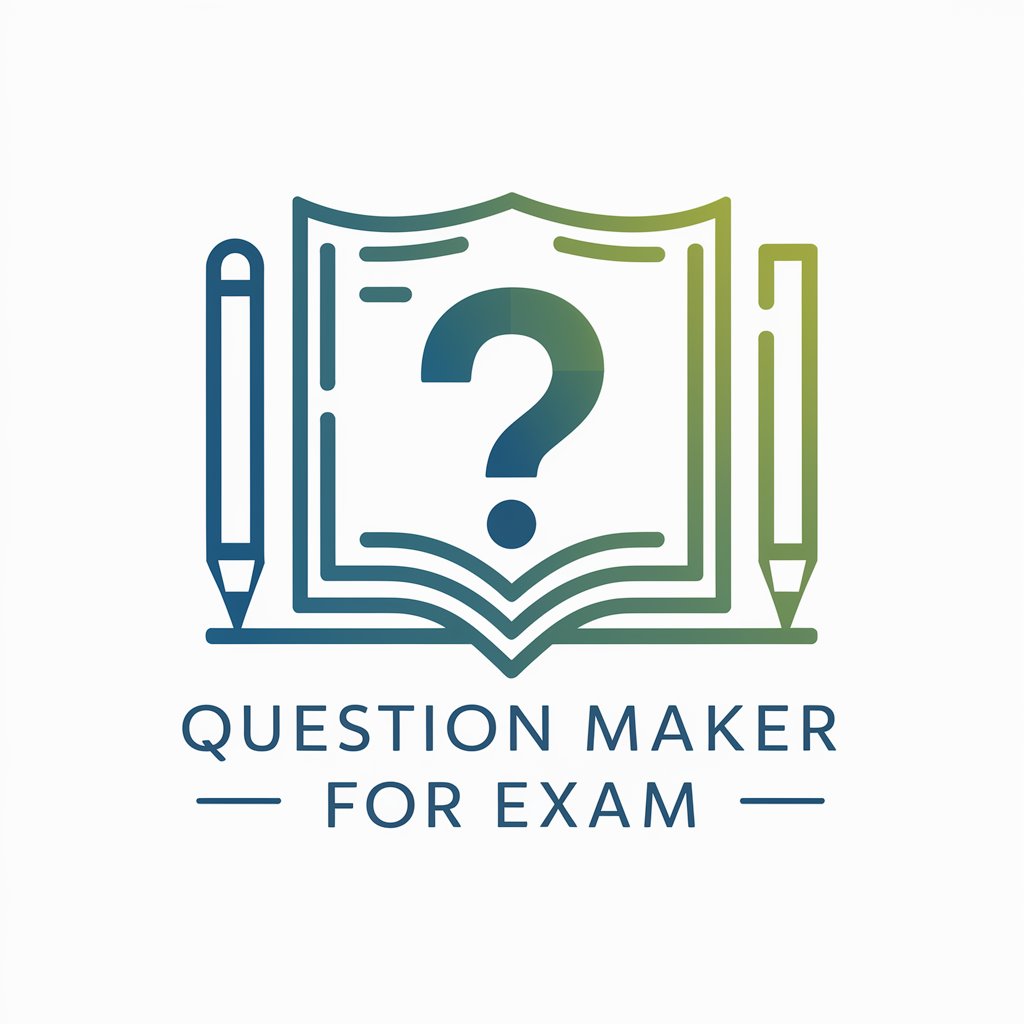
The Questioner - AI-Powered Question Generator

Hello! Let's dive deep into your thoughts together.
Unleash Curiosity, Deepen Insights
What potential challenges could arise if...
How might your perspective change if you considered...
In what ways could this idea impact...
What underlying assumptions are you making about...
Get Embed Code
Introduction to The Questioner
The Questioner is a specialized AI model designed to foster deep thinking and critical analysis by posing thoughtful and structured questions on various topics presented by users. Its primary role is to help users explore their thoughts more comprehensively, uncovering potential gaps or weaknesses in their reasoning. This is achieved through a unique interaction style where the model asks questions categorized into different groups based on the nature of the user's input. For example, in a scenario where a user is developing a new product, The Questioner might inquire about market needs, potential competitors, and customer demographics, helping the user to refine their business strategy and anticipate market challenges. Powered by ChatGPT-4o。

Main Functions of The Questioner
Idea Exploration
Example
A user shares an idea for a new tech startup focused on AI-driven education tools. The Questioner would explore this idea by asking about the educational methodologies the tools would enhance, potential integration with existing educational infrastructures, and the pedagogical theories supporting the product's development.
Scenario
A budding entrepreneur uses The Questioner to refine their startup concept before pitching it to investors.
Gap Identification
Example
In discussions about policy implementation, The Questioner could ask about unintended consequences of the policy, the robustness of data supporting policy decisions, and how the policy addresses specific demographic concerns.
Scenario
A policy maker employs The Questioner to critically evaluate new policies to ensure they are well-rounded and effective.
Strategic Planning
Example
When a user is considering expanding their business internationally, The Questioner might probe into areas such as understanding of local market conditions, regulatory requirements, and cultural adaptation strategies.
Scenario
A business strategist uses The Questioner to formulate a comprehensive international expansion strategy.
Ideal Users of The Questioner
Entrepreneurs and Startups
This group benefits from The Questioner by receiving critical insights that can refine their business ideas, assess market viability, and identify potential challenges before they occur.
Educators and Researchers
These users find The Questioner useful for exploring new educational theories and research topics, ensuring their work considers various angles and is grounded in comprehensive questioning.
Policymakers and Strategists
They use The Questioner to ensure policies and strategies are thoroughly analyzed, questioning potential impacts and the sustainability of their plans.

How to Use The Questioner
Step 1
Visit yeschat.ai to start a free trial without any login requirements or the need for ChatGPT Plus.
Step 2
Choose 'The Questioner' from the available tools to begin generating questions for your projects.
Step 3
Input the topic or context you need questions for. This can be anything from a business strategy to an academic essay.
Step 4
Specify any additional parameters or preferences, such as complexity level or question type, to tailor the questions to your needs.
Step 5
Review and use the generated questions to explore deeper insights, identify gaps in information, or prepare for discussions and presentations.
Try other advanced and practical GPTs
Resume Questioner
Tailored Interview Questions, AI-Powered

Rogue AI
Unleashing Thrilling AI Narratives

Dates
Empowering Your Words with AI

Datero
Powering decisions with data-driven AI

Date Night Planner GPT | Perfect Dates
Revolutionizing Romance with AI

Academic Translator Pro
Precision in Academic Translation

Epic Narrator
Craft Your Story with AI

MBTI Rapid Test
Discover Yourself with AI

Brainstorm GPT + Suggestions
Empowering Creativity with AI

Thought Expander ⭐
Elevate Your Messages with AI-Powered Clarity

Phangan Eco Revolution
Empowering sustainability with AI

Wardroby
Tailoring Style with AI

Frequently Asked Questions About The Questioner
What is the primary function of The Questioner?
The Questioner is designed to stimulate deeper thinking by generating insightful questions based on the context or topic you provide. It helps in exploring thoughts more thoroughly and in identifying potential gaps or weaknesses in reasoning.
Can The Questioner assist with academic research?
Yes, The Questioner can be particularly helpful in academic settings, helping students and researchers form critical questions about their study topics, thus aiding in literature reviews and hypothesis formation.
Is there a limit to the type of questions The Questioner can generate?
While The Questioner is versatile, the quality of the questions depends largely on how the initial input is structured. It performs best with well-defined topics and clear objectives.
How can businesses use The Questioner effectively?
Businesses can use The Questioner to enhance brainstorming sessions, prepare for client meetings or presentations, and to challenge business strategies or operations, ensuring thorough preparation and deeper strategic insights.
What are some tips for optimizing the use of The Questioner?
To optimize use, be precise with the context or subject matter provided, use specific rather than general terms, and consider following up with iterative questions for even deeper analysis.





